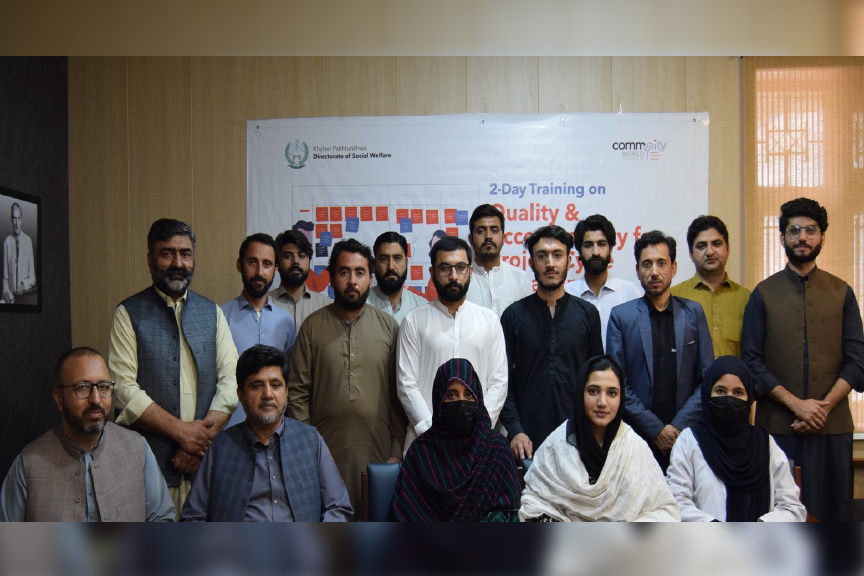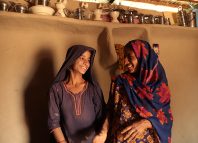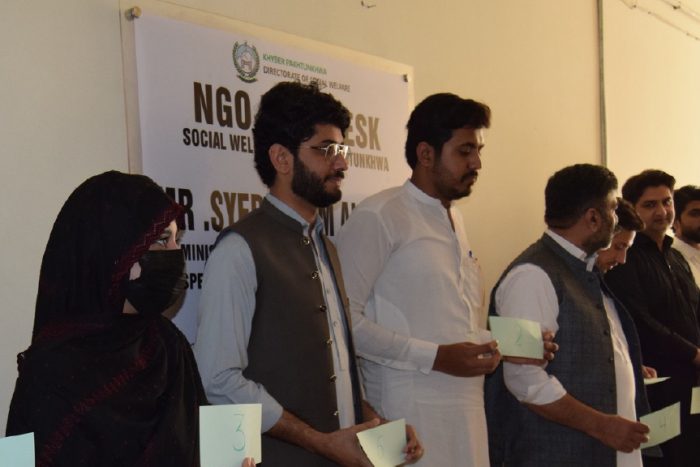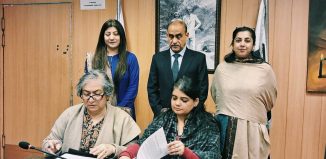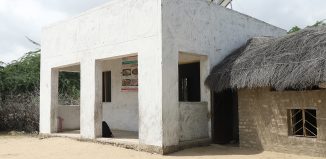Building Bridges for Change: The Joint Efforts of CWSA and Pakistan’s Social Welfare Department
Over the past few years, Pakistan’s civil society landscape has faced increasing operational constraints. Shrinking civic space, regulatory restrictions, and growing mistrust between non- governmental organisations (NGOs) and state institutions have posed significant challenges. However, amid these complexities, Community World Service Asia (CWSA) has emerged as a crucial ally for local civil society organisations (CSOs), forging a robust and productive partnership with the Social Welfare Department (SWD) across several provinces.
This partnership, driven by shared goals and strategic collaboration, has not only enhanced the capacity of CSOs but has also strengthened the role of the SWD in enabling a more responsive, transparent, and coordinated regulatory environment.
Further, the lack of effective project management, communication, and advocacy mechanisms has affected both the efficiency of CSOs and the government’s perception of them. In response, CSOs have begun enhancing their communication strategies and digital capabilities.
Against this backdrop, Community World Service Asia (CWSA) launched a three-year initiative titled “Strengthening Civil Society Organisations for Sustainable Development”. This comprehensive project encompasses a digital training programme, development of policy- oriented position papers, establishment of provincial help desks, and creation of a legal advisory cell. It also promotes regulatory compliance and encourages the formation of CSO coalitions for improved networking and advocacy.
Through this collaboration, Community World Service Asia (CWSA) is fostering a civic environment where local civil society organisations (CSOs) can operate freely and effectively alongside communities to address social, developmental, and climate-related challenges. The project focuses on two key components: regulatory advocacy and digital capacity building for CSOs.
This initiative has contributed to strengthening the legal and regulatory frameworks governing CSOs. More than 4,000 supported CSOs have successfully registered with the Economic Affairs Division (EAD), Social Welfare Department (SWD), or the Charity Commission. Key achievements include supporting Provincial Social Welfare Department in learning and exchanges on regulatory compliance and initiative to have uniform SOPs for NGO registration and renewal, the establishment of provincial help desks, a Legal Advisory Cell at CWSA, and the formation of CSO coalitions to drive sustained policy advocacy. Notably, at least 30% of the 11,050 participants engaged in this component are women.
The Digital Learning Hub, a product of this collaboration, has served as a cornerstone for building CSO capacity through a digital platform offering courses on quality, accountability, advocacy, and climate change adaptation. Over 70% of the 210 participating CSOs have reported improvements in their programmes following the training. The initiative also launched a digital resource library, mentorship programmes, and created national and regional linkages to broaden learning and collaboration. Women account for at least 30% of the platform’s 5,800 users, reinforcing the project’s commitment to gender inclusion.
Impact Across Provinces: Stories of Success and Transformation
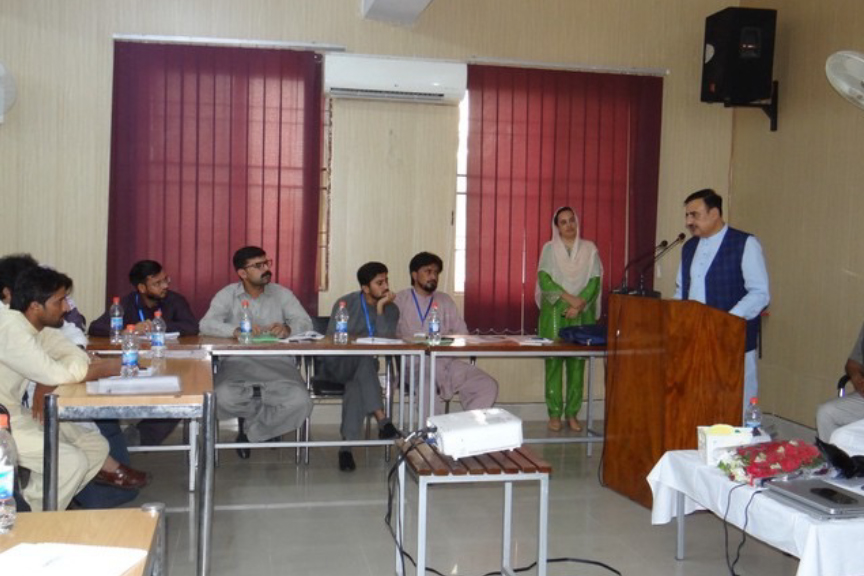
Khyber Pakhtunkhuwa (KPK): Mr Fatmin Allah, Additional Director at the SWD in KP, detailed how the department scrutinises the registration and performance of NGOs. Out of 49,533 applications, 3,394 organisations were deregistered for failing to meet legal requirements such as annual audit submissions and executive body elections. The situation intensified when Pakistan was placed on the FATF grey list, which mandated stricter financial scrutiny and led to the deregistration of a further 3,030 organisations nationwide.
The CWSA-SWD collaboration helped address many of these challenges. For instance, CWSA’s assistance in understanding complex compliance requirements supported many NGOs in maintaining their registrations. The partnership also opened avenues for dialogue and clarity on evolving regulations.
Mr Fatmin Allah pointed out that the SWD, with its established infrastructure and human resources, is well-placed to oversee NGO registration and compliance. He advocated for streamlining responsibilities between the SWD and Charity Commission to avoid duplication. Amendments have been proposed to the 1961–62 Ordinance— including police verification, education requirements for executive members, and language proficiency—to align with donor expectations and FATF criteria. These reforms await approval but were largely shaped through SWD’s enhanced engagement, supported by CWSA.
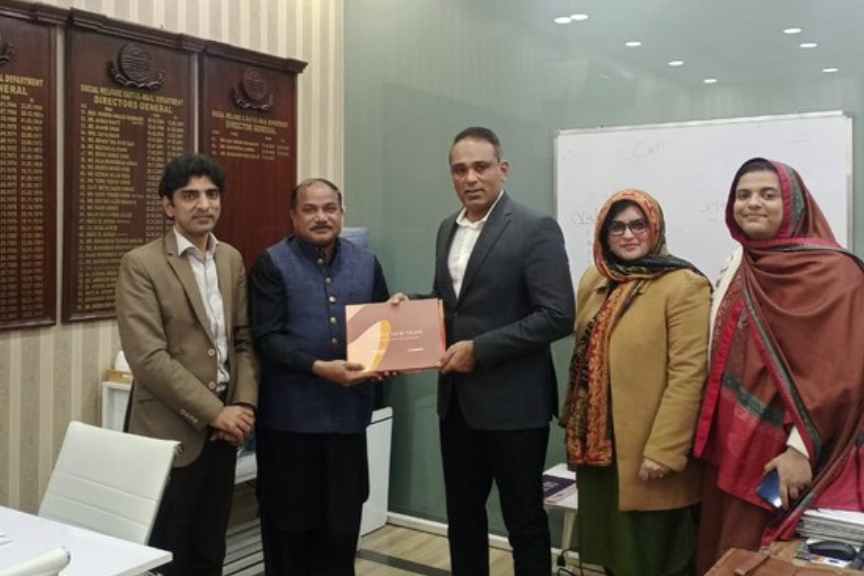
“There is an urgent need to address government misconceptions about NGOs, particularly around funding and staff lifestyles. CWSA’s awareness efforts are a very valuable step in correcting such misperceptions,” remarked Mr. Fatmin
Sindh: Mr Naqeeb Ur Rehman, Director Planning at the SWD in Sindh, underscored the tremendous benefits of CWSA’s support. Since the partnership began roughly three years ago, 6,500 NGOs have been successfully registered. The collaboration has introduced compliance guidelines and facilitated awareness sessions around the legal and procedural frameworks affecting CSOs, including the Societies Act, Charity Commission laws, and EAD procedures.
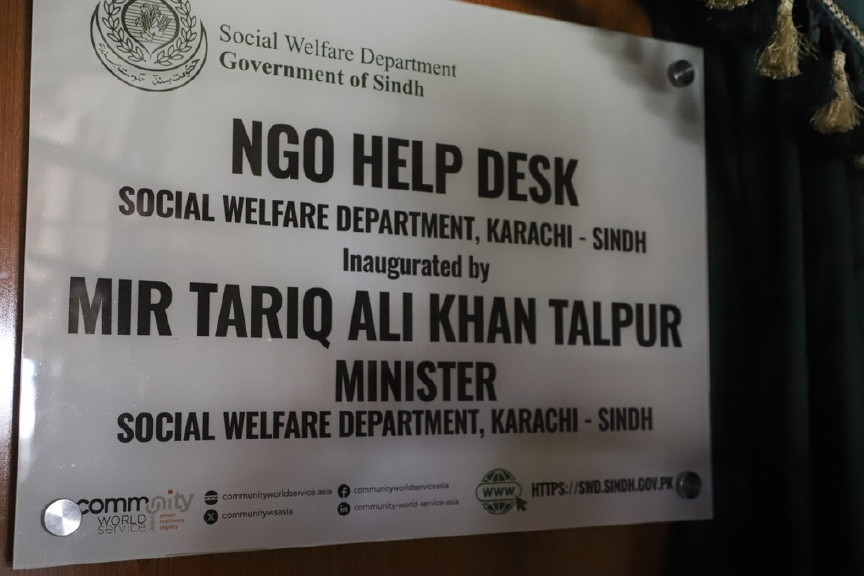
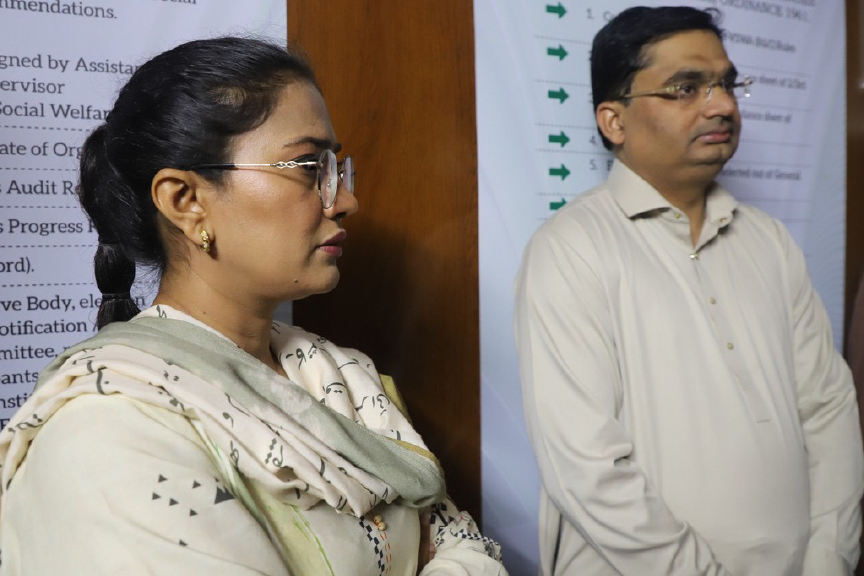
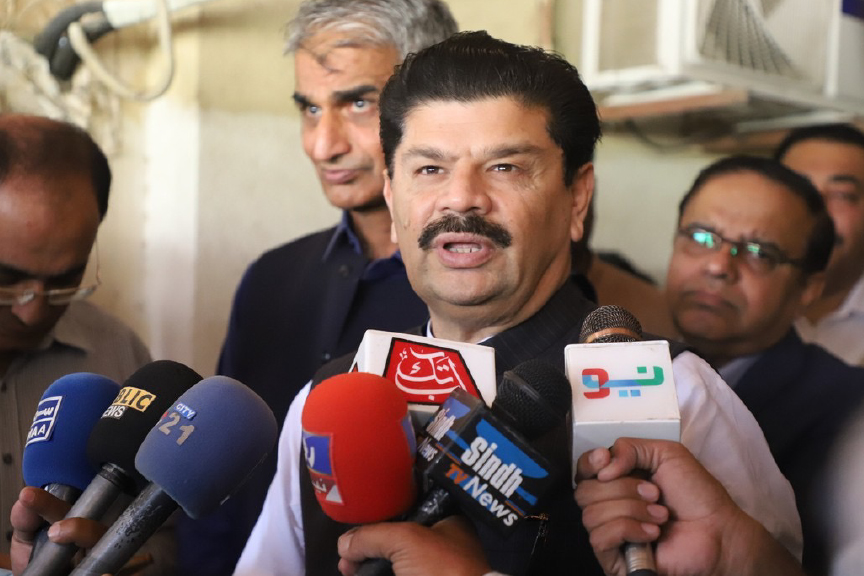
In the past, many NGO founders relied on private lawyers, resulting in incomplete or misinformed applications. Files were often delayed or ignored. CWSA’s intervention changed this landscape dramatically.
“A notable contribution is the Help Desk established in Sindh, equipped with laptops, a dedicated phone line, WhatsApp support, an online directory, and coordination resources,” shared Mr. Rehman. Launched on 6 March, this facility has become a vital hub for NGO assistance, supporting smoother registration and problem resolution.
Mr Rehman highlighted that CWSA also contributed to capacity building, especially in project cycle management. “Trainings organised in Hyderabad attracted participants from distant districts like Umerkot, Sumaro, Kunri, and Pithoro, reflecting the value and credibility of these programmes. Despite transportation challenges in interior Sindh, the turnout reinforced the significance of CWSA’s presence in the region.”
He concluded with a request for enhanced support and coordination among SWD departments across provinces, suggesting that a national-level learning forum could help bridge information gaps and create consistency in practice.
Punjab: The partnership in Punjab has been especially fruitful. Ms Aksa Rafique Chaudhry, Deputy Director of the SWD in Lahore, described how the relationship evolved with enthusiasm and mutual respect. With CWSA’s support, the Social Welfare Department (SWD) successfully established a Help Desk at its Lahore office, facilitating the registration of over 3,000 NGOs.
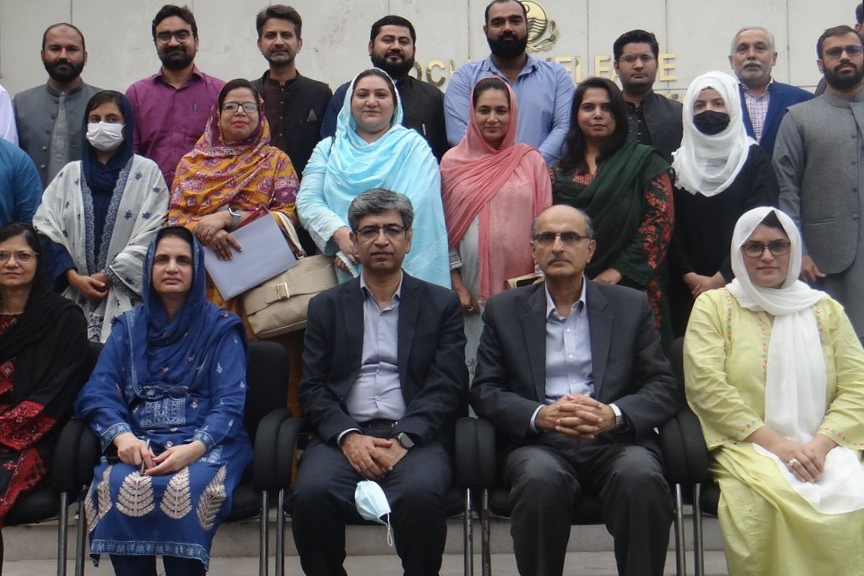
Additionally, CWSA’s advocacy efforts, awareness initiatives with NGOs, and specialised training programs for SWD staff significantly enhanced the department’s operational capacity, strengthening its ability to serve and coordinate with civil society organisations effectively. “These trainings enabled officers to effectively manage queries related to registration, compliance, and documentation. CWSA also transformed an unused store room into a functioning help desk, equipped with a laptop and data systems to better manage NGO records,” expressed Ms Chaudhry, appreciating this practical and impactful support.
She proposed several key recommendations to strengthen the partnership between government and NGOs. These included expanding specialised trainings—particularly on the 1961 Act and the updated 2022 Standard Operating Procedures (SOPs)—to build shared understanding. She also emphasised the need for improved communication to address persistent misconceptions about NGOs, and encouraged greater resource sharing and coordination to avoid duplication of efforts. Lastly, she advocated for institutionalising regular training cycles every 4–5 years to ensure sustained learning and policy responsiveness among government officials.
At the Federal Level: Economic Affairs Division (EAD)
Mr Naveed Ali, Document Specialist at the EAD, acts as a vital bridge between the state and civil society. CWSA advocated for a help desk with the EAD to streamline the registration process and provide due guidence to the NGOs on regulatory requirements. Naveed was placed as ‘Intern’ under the CWSA project at EAD for data digitization. Through CWSA’s support, he manages the Islamabad help desk (also established under this collaboration) that has guided over 3,200 organisations through the EAD registration process. Despite complex documentation procedures—including project reviews, spot checks, and bank verifications—Mr Ali and his team have facilitated completion for approximately 1,200 organisations.
In addition to webinars and a training portal, a comprehensive FAQ section and phone support system were created to improve accessibility. However, Mr Ali highlighted challenges such as repeated or irrelevant queries—even at late hours. Still, he remains committed to his role, emphasising the satisfaction of helping marginalised communities thrive. As he put it, “Hum tou chahtay hain ke in logon ka choolha jalta rahay.” (“We want the stoves of these people to keep burning.”)
A Model for Collaborative Governance
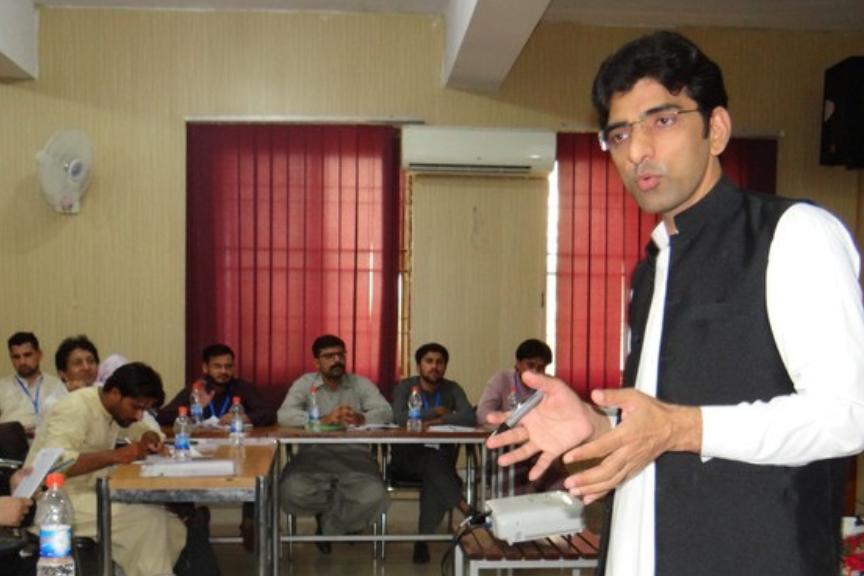
The partnership between CWSA and the Social Welfare Department has proven to be a powerful catalyst in strengthening civil society across Pakistan. By building institutional capacity, improving regulatory frameworks, and promoting mutual trust, CWSA and the SWD have paved the way for a more inclusive, accountable and resilient civil society sector.
This success illustrates that even within a restricted civic space, constructive engagement and joint action can bring about meaningful, sustainable change.
